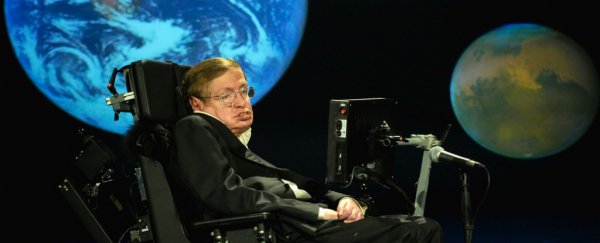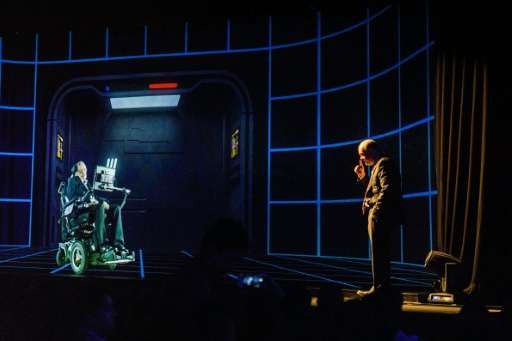Renowned physicist Stephen Hawking gave a talk in Hong Kong on Friday (24 March), appearing in front of the audience from the comfort of his home in Cambridge as a surprisingly life-like 3D hologram.
In addition to answering questions about travelling to other planets and black holes, he took the time to comment on the current 'fake news' climate around the world, telling the audience, "We are witnessing a global revolt against experts."
Hawking was referring to environmental challenges such as deforestation and climate change, and the unwillingness of many world leaders and members of the public to follow the advice of scientists.
"The answer to these problems will come from science and technology," he explained.
The remarks echo a statement Hawking made last year, when he told audiences in Cambridge, UK, that we need to invest more time and money studying the implications of artificial intelligence, which he noted will be "either the best, or the worst thing, ever to happen to humanity".
"We spend a great deal of time studying history, which, let's face it, is mostly the history of stupidity," Hawking said at the time.
"So it's a welcome change that people are studying instead the future of intelligence."
Hawking added that he strongly believes, if harnessed properly, artificial intelligence will help us eradicate disease and poverty, and could even help to reverse some of the damage we've done to the planet.
But without proper regulation, he worries that AI will lead to "powerful autonomous weapons" and "new ways for the few to oppress the many".
The physicist has also warned the public that if we fail to properly make the most of the power of science, artificial intelligence, and technology, our time on the planet will be limited.
"[W]e must … continue to go into space for the future of humanity," Hawking said last year. "I don't think we will survive another 1,000 years without escaping beyond our fragile planet."
To that end, at least, he's making progress, agreeing this month to go to space on board Richard Branson's Virgin Galactic SpaceShipTwo.
At 75 years old, he won't be the oldest person to go into space - that title goes to John Glenn who travelled into space at the age of 77 - but he will be the first person in space with ALS (amyotrophic lateral sclerosis), also known as Lou Gehrig's disease.
His trip may allow scientists to study more about how a microgravity environment affects the condition, which has rendered him paralysed.
Hawking was diagnosed with ALS at 21, and the prognosis at the time was that he wouldn't survive past his 25th birthday. Now, more than 50 years on, he's still one of the greatest minds of our time.
And seeing as he's already made travelling more than 9,580 km (5,953 miles) by hologram from Cambridge to Hong Kong look so easy, we can't wait to see him pull off space travel (almost) as effortlessly.
You can see some highlights from the lecture below:

